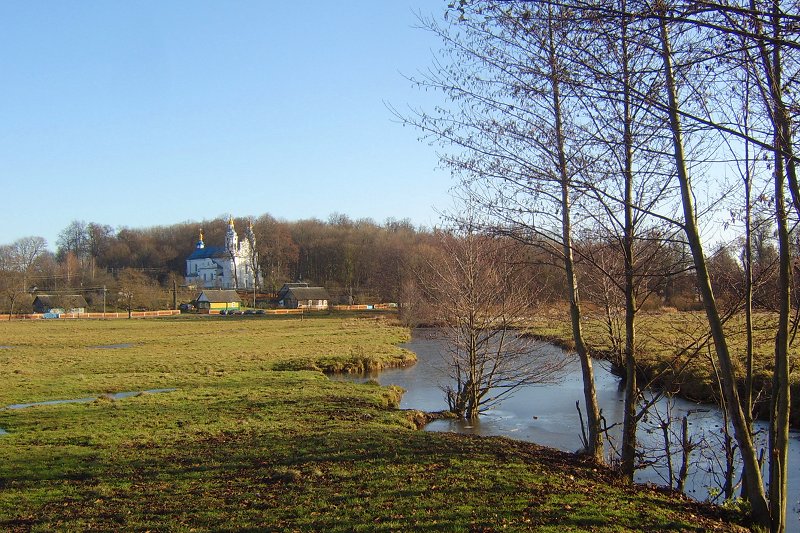 Belarus landscape with Orthodox Church of the Holy Trinity, Volna
Belarus landscape with Orthodox Church of the Holy Trinity, VolnaSource: https://commons.wikimedia.org/wiki/File:Volna_01_11_2009.JPG
Author: Ruslan Raviaka

Belarus is a landlocked country in Eastern Europe. Covering an area of 207,600 sq km (80,200 sq mi), it is bordered to the northeast by Russia, to the south by Ukraine, to the west by Poland and to the northwest by Lithuania and Latvia. The country has a population of 9.5 million people (2011 estimate). The capital and largest city is Minsk.
In 2010, Belarus has a nominal GDP of $52.9 billion and a per capita nominal GDP of $5,606. Its per capita GDP at purchasing power parity is $13,864. The official currency is the Belarusian ruble (BYR). The phone IDD code is +375. Cars drive on the right side of the road. Most people profess to Russian Orthodox Christianity, with the Roman Catholicism faith having the second most popular following.
Places in Belarus on this website
Major Cities in Belarus
World Heritage Sites in Belarus
Belarus ratified the World Heritage Convention on 12 October, 1988. As of August 2010, it has three Cultural World Heritage Sites and one Natural World Heritage Site. Belarus presently has submitted ten sites on the World Heritage Tentative List.-
Cultural
- Mir Castle Complex (2000)
- Architectural, Residential and Cultural Complex of the Radziwill Family at Nesvizh (2005)
Natural
- Belovezhskaya Pushcha / Białowieża Forest (1979)
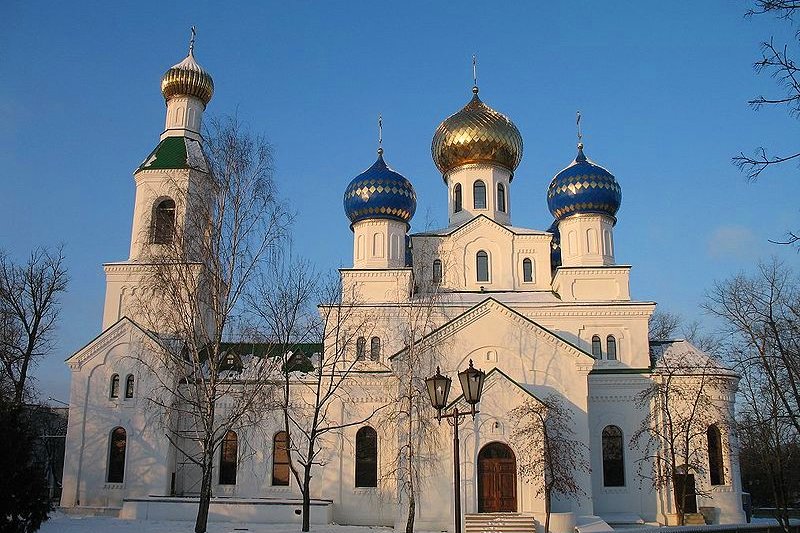 The Orthodox Church of Bobrujsk, Belarus
The Orthodox Church of Bobrujsk, BelarusSource: https://commons.wikimedia.org/wiki/File:Bobrujsk_church2a_BY.jpg
Author: Paju

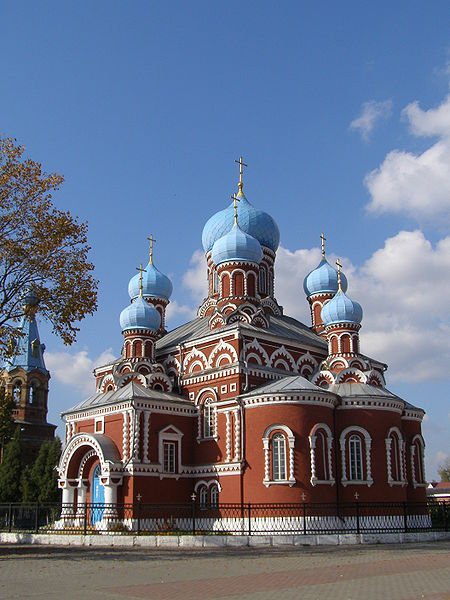 Orthodox church of Barysau, Belarus
Orthodox church of Barysau, BelarusSource: https://commons.wikimedia.org/wiki/File:Orthodox_Church_in_Barysa%C5%AD.jpg
Author: griser

Until the 20th century, the area that forms present-day Belarus comprised parts of the Principality of Polotsk, the Grand Duchy of Lithuania, the Russian Empire, and the Polish-Lithuanian Commonwealth. Following the Russian Revolution, Belarus became a constituent republic of the Soviet Union, known as Byelorussian SSR.
Belarus declared its independence on 25 August 1991 just as the Soviet Union was collapsing. The name Belorussia was used until 1991, when the new independent republic was decreed to be known as Belarus.
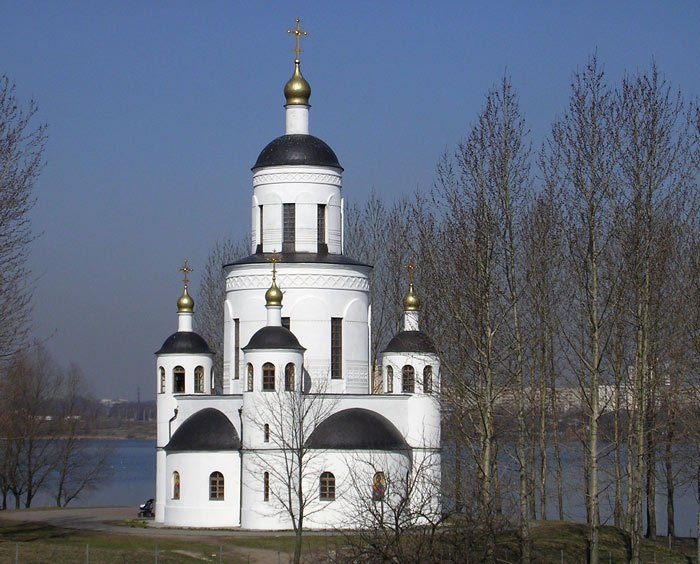 Church of St George (Georgievskaya) in Minsk
Church of St George (Georgievskaya) in MinskSource: https://commons.wikimedia.org/wiki/File:Georgievskaya_church_2000.jpg
Author: Ak1976

Planning your visit to Belarus
The only people who do not need a visa to visit Belarus are nationals of Armenia, Cuba, Georgia, Kazakhstan, North Korea, Kyrgyzstan, Macedonia, Moldova, Mongolia, Poland, Russia, Tajikistan, Ukraine, Uzbekistan and Vietnam. Visa upon arrival is available to nationals of countries with no Belarusian consular offices.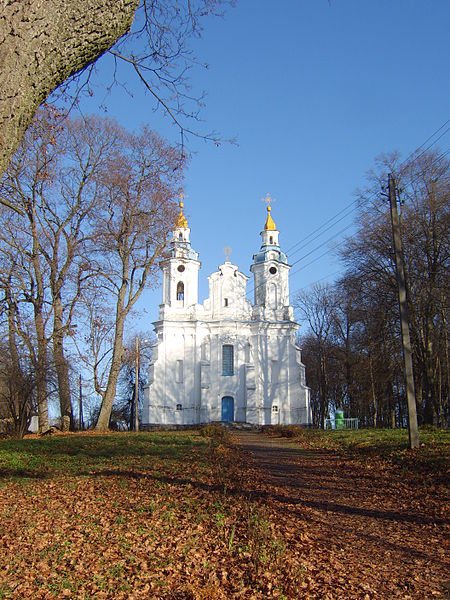 Greek Orthodox Church of the Holy Trinity, Volna, Belarus
Greek Orthodox Church of the Holy Trinity, Volna, BelarusSource: https://commons.wikimedia.org/wiki/File:Volna_church_01_11_2009.JPG
Author: Ruslan Raviaka

By Plane
If you are flying to Belarus via a Russian airport, yoou need a Russian transit visa, to be obtained from your home country. As this can get you into bureaucratic entanglements, I would recommend that you fly through an airport in a Schlengen country.
International gateway to Belarus is through the Minsk National Airport (MSQ), located 42 km (26 mi) to the east of the capital. This airport gets flights from cities in Western Europe such as Frankfurt and Vienna.
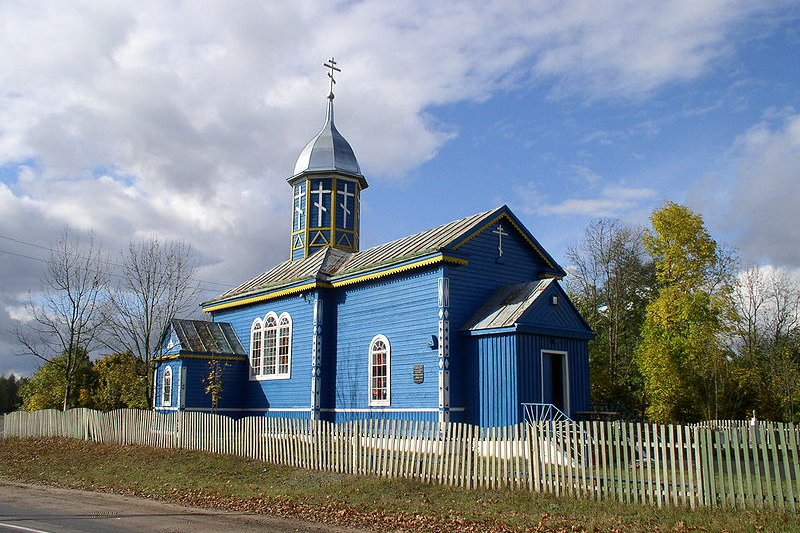 Church of St George, Vyalikiya Kruhovichy, Belarus
Church of St George, Vyalikiya Kruhovichy, BelarusSource: https://commons.wikimedia.org/wiki/File:Belarus-Vyalikiya_Kruhovichy-Church_of_George-2.jpg
Author: Alex Zelenko

 Latest updates on Penang Travel Tips
Latest updates on Penang Travel Tips

Copyright © 2003-2025 Timothy Tye. All Rights Reserved.

 Go Back
Go Back